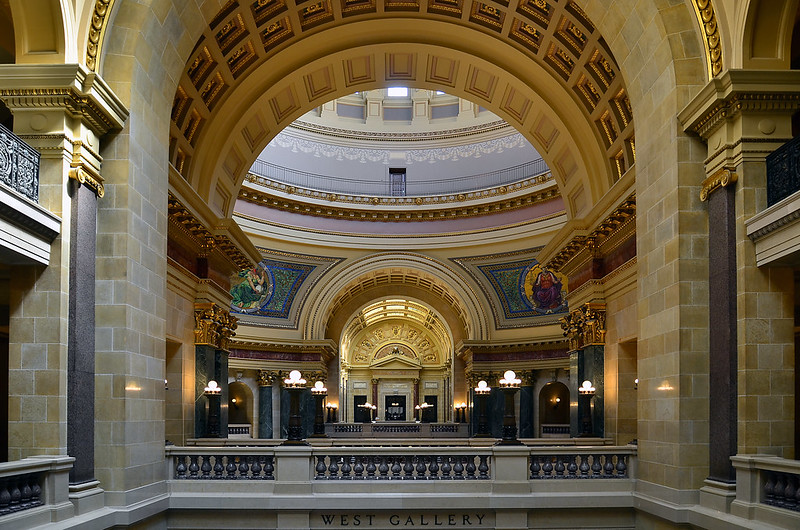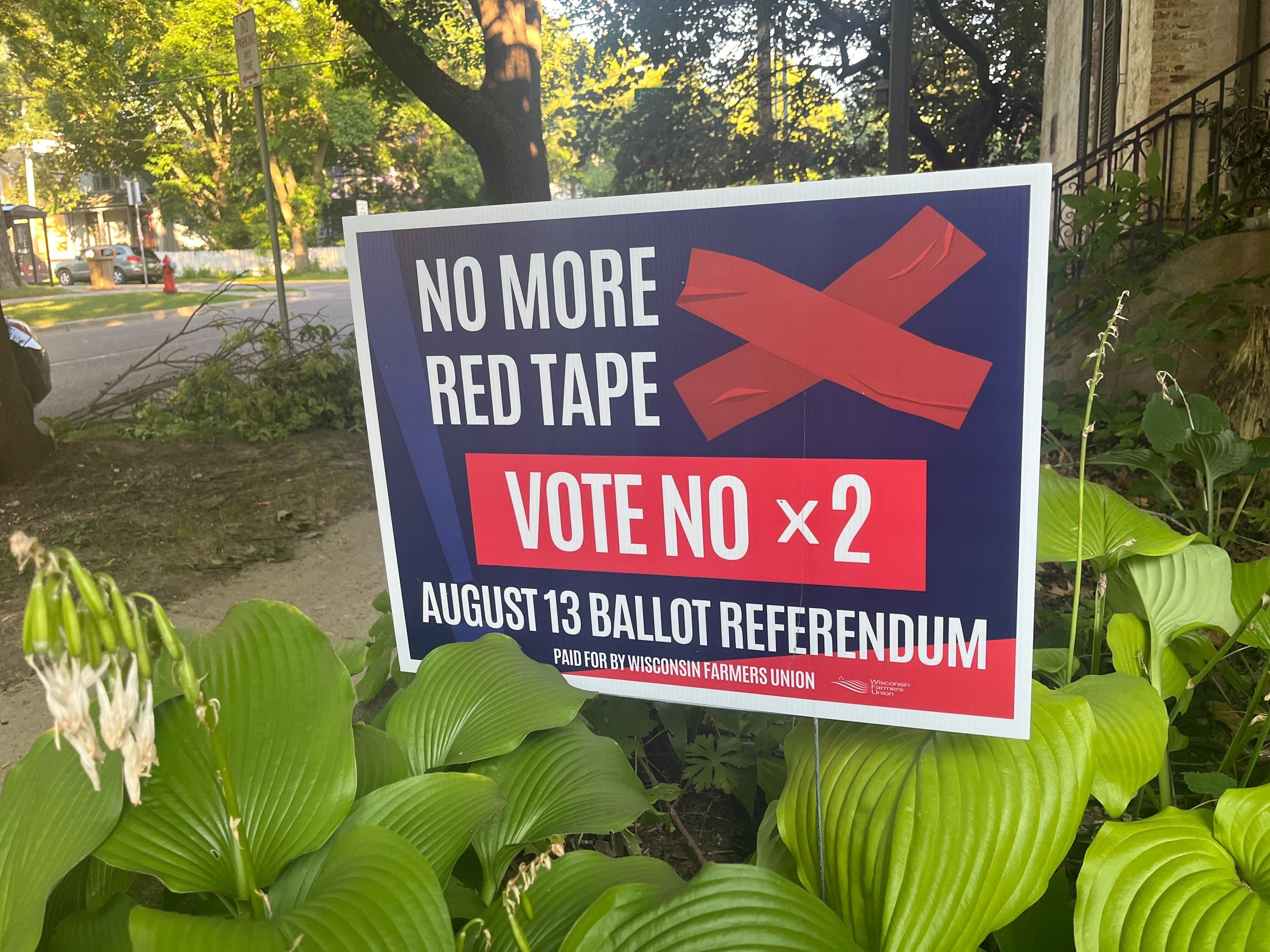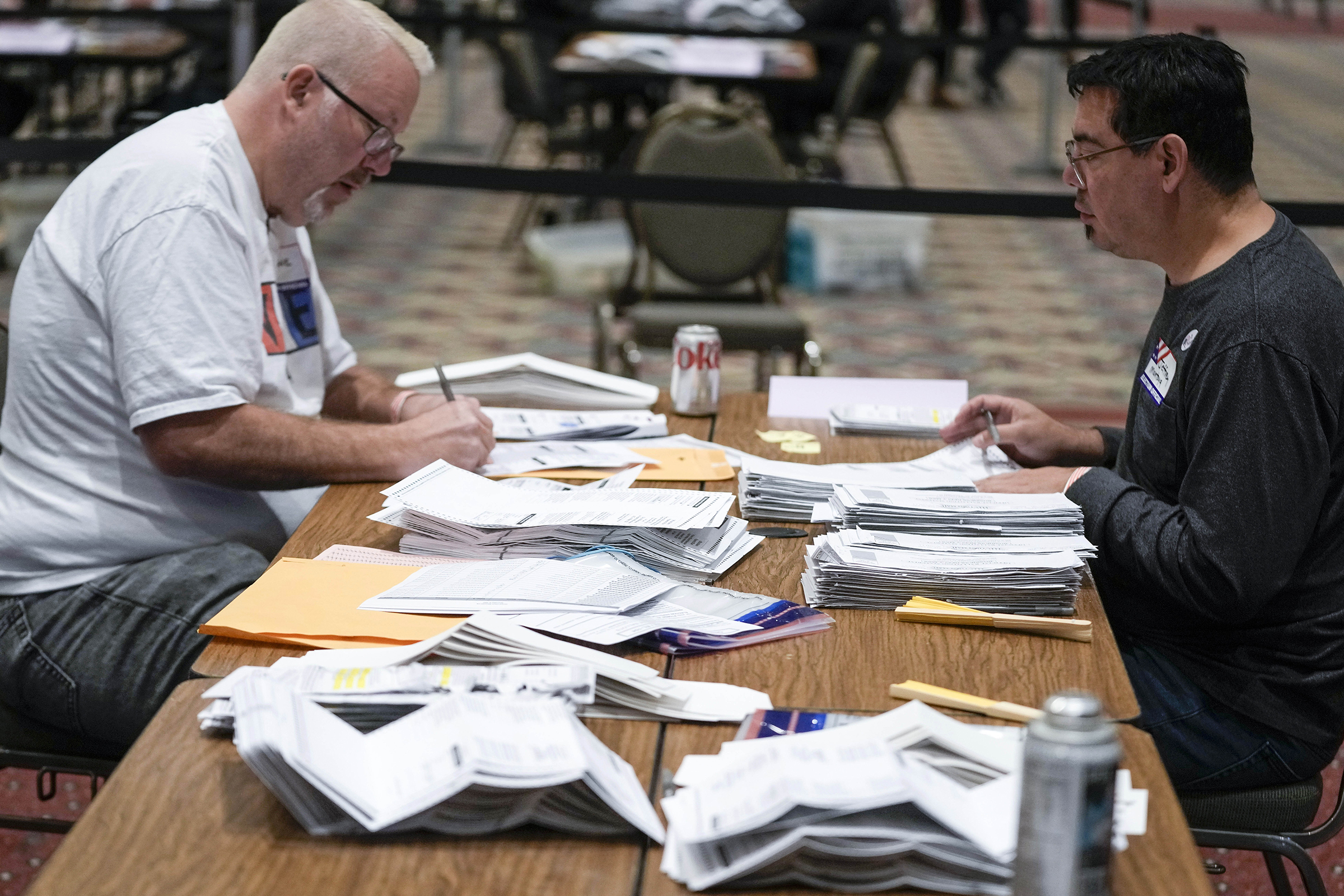Foreign nationals would be banned from spending money on state and local referendums in Wisconsin under a bill introduced by Democratic state lawmakers.
Supporters say it’s aimed at closing a loophole created by a federal ruling that foreign donors can finance U.S. referendum campaigns.
In 2021, the Federal Election Commission ruled that referendum ballot initiatives are not considered elections under existing federal law. The decision came after a complaint was filed in Montana alleging a Canadian subsidiary of an Australian mining company illegally financed an effort to block new mining restrictions.
News with a little more humanity
WPR’s “Wisconsin Today” newsletter keeps you connected to the state you love without feeling overwhelmed. No paywall. No agenda. No corporate filter.
A memo seeking support for the Wisconsin bill, authored by Rep. Melissa Ratcliff, D-Cottage Grove, Sen. Chris Larson, D-Milwaukee and Sen. Mark Sprietzer, D-Beloit, says that ruling exposed a “glaring loophole,” which their legislation seeks to address.
During a hearing before the Assembly Committee on Campaigns and Elections, Ratcliff said while she isn’t aware of any examples of foreign donations going toward Wisconsin referendum campaigns, lawmakers should be proactive. She said a foreign-owned company with a location in Wisconsin, for example, could finance an effort to block a local school referendum to avoid paying higher property taxes.
“So, depending on what certain foreign entities have to gain, they could contribute to one side or another in order to skew the results that would benefit them,” Ratcliff said.
In addition to local property tax referendums, Ratcliff said that under current law, foreign individuals could also make donations to committees formed in support or opposition of proposed constitutional amendments in Wisconsin.
With Republicans controlling the Legislature and Democrat Tony Evers holding the governor’s office, constitutional amendments have been increasingly used by GOP lawmakers to get around a potential veto.
Republican lawmakers have introduced a number of resolutions seeking to change the state’s constitution this session to require a two-thirds supermajority vote in the Legislature to enact tax increases, prevent municipalities from using private grants to assist with election-related costs and give legislators, not the governor, final say over how the state spends certain federal funds.
Resolutions to amend the constitution don’t require the governor’s signature. They can be passed by two consecutive sessions of the Legislature before getting final approval from voters by way of a referendum question.
During testimony Tuesday, Rep. Lee Snodgrass, D-Appleton, asked why her GOP colleagues had yet to sign on to the legislation. So far, the plan has only Democratic support.
“I think it’s one of the few things we can probably agree on, that we don’t want foreign governments interfering in our elections in any way,” Snodgrass said.
Rep. Krug, R-Nekoosa, who chairs the elections panel, responded that he would support the bill.
“It’s not as though we’re not going to have referendums coming up soon in the state of Wisconsin for certain things, because of where we’re at politically,” Krug said.
Rep. Donna Rozar, R-Marshfield, also said she would sign on to the plan.
Wisconsin Public Radio, © Copyright 2026, Board of Regents of the University of Wisconsin System and Wisconsin Educational Communications Board.







